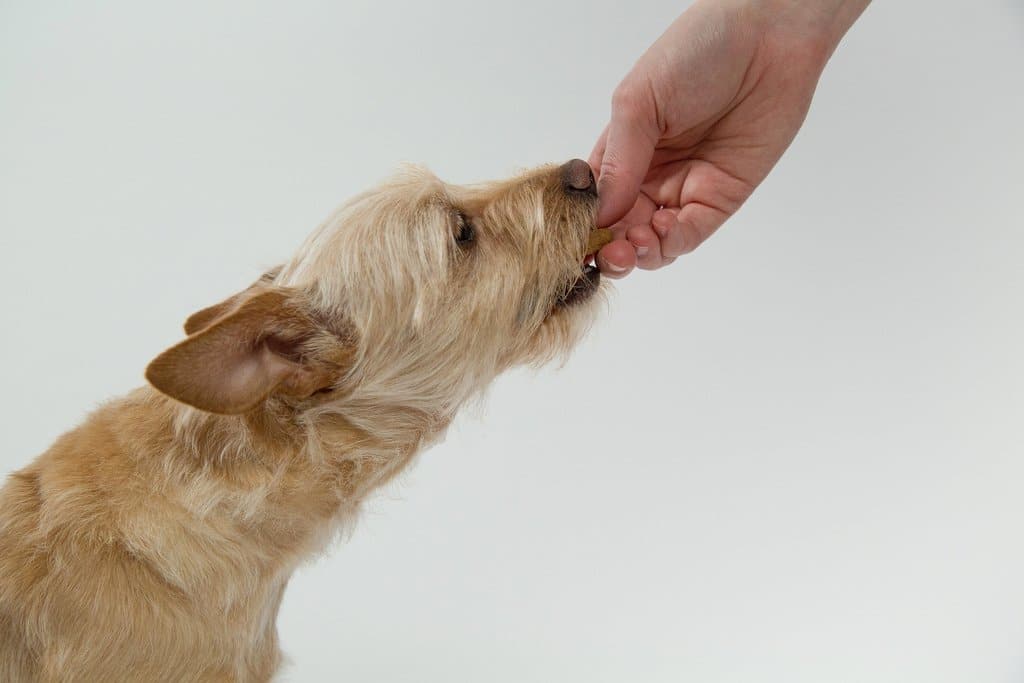Read the ingredients label on a typical bag of dog food and you’ll likely find that it lists ingredients like chicken meal, rice, corn, fat, and perhaps some added vitamins.
What you won’t find are things like arsenic, lead, and mercury. But just because they aren’t listed on the label, doesn’t mean they aren’t present in your dog’s dinner. Which begs the question….
What’s (Really) In Your Dog’s Food?
Recently, trends have seen a shift from processed foods to more natural, wholesome, organic, and locally grown ingredients. As humans are becoming more aware of the adverse effect that poor nutrition has on their health, their eating choices are changing.
While this is great news, many of these same people don’t feel the need to reexamine the diet of a very important member of their family: their dog. Yet truly clean dog food is exceedingly hard to find.
A recent study by the Clean Label Project found that more than half of all tested dog food brands contained toxins such as arsenic, cadmium, and lead. And these were more than trace amounts, too. Many brands contained more than twice the amount of arsenic found in a typical cigarette and some food contained 16x more lead than Flint, Michigan’s contaminated water.
What Makes These Ingredients So Dangerous?
While some metals are necessary for our bodies to work well (iron, for example), others are known to cause serious adverse side effects.
- Acrylamide – neurological impairments and gastrointestinal symptoms
- Antibiotics – antibiotic resistance
- Arsenic – gastrointestinal symptoms
- BPA – heart issues, cancer, neurological impairments
- Cadmium – neurological impairments, increased blood pressure, kidney and liver damage
- Lead – heart issues, kidney and liver issues, neurological impairment, gastrointestinal symptoms, skeletal symptoms
- Mercury – neurological impairments
- Mycotoxins – cancer
- Pesticides – neurological impairments and kidney damage
It’s highly unlikely that you would tolerate these ingredients in any concentration in your own food, so why would you feed them to your dog?
The Importance Of Clean Dog Food
While low levels of some of these ingredients are considered to be “safe” by the FDA, it’s important to consider two things: your dog’s diet and their weight.
Over the course of a year, most humans get their protein, fats, and carbs from widely different sources. If the swordfish you ate last week had a small amount of mercury in it, your body probably won’t feel any ill effects.
But when you purchase a bag of kibble for Rocky, you feed him from the same bag twice a day. If that dog food is contaminated, your beloved pet is steadily consuming the same levels of toxins every day for as long as you feed him that food.
His weight is also something to consider. Where a human would weigh around 150 lbs., a dog might only be 25 lbs. A “safe” amount of mercury in a human could pack a serious punch in a smaller animal.
What’s more, the government has very different standards for dog food and human food. Ingredients that would never be allowed in human food may be added to pet food almost without regard.
Clean Dog Food For A Healthy Pet
At Rick’s Dog Deli, our philosophy is simple: if we wouldn’t eat it ourselves, we don’t feed it to your dog.
Our meal formulations aren’t technically “dog food” at all, because they are 100% human grade. Wholesome, nutritious ingredients are lovingly blended, gently cooked, and flash frozen to preserve as many nutrients as possible.
We have seen firsthand the effects that a quality diet can have on your pet, from preventing disease to alleviating certain health conditions. We believe that diet and nutrition is more important than medicine when it comes to your dog’s health. Part of that means giving them the right nutrients and part of it means feeding your pets clean dog food without dangerous toxins.
For more information call/text 407.505.2839.


